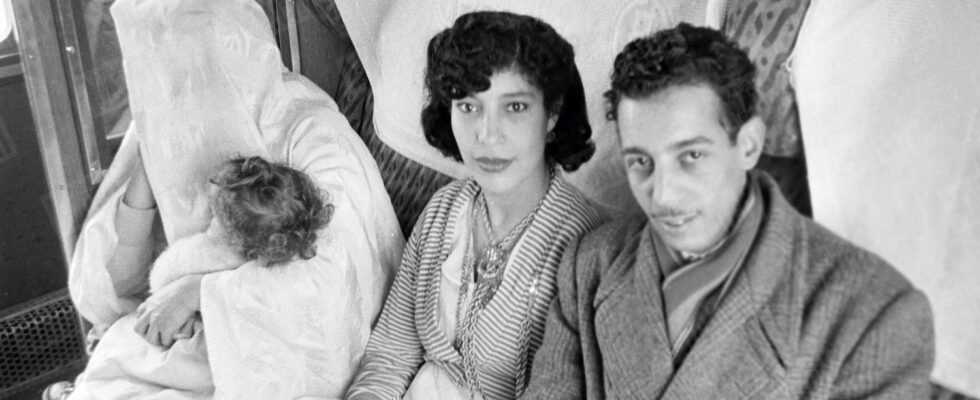At that time, my father was entering his teens. He was 13 years old and had never lived elsewhere than in his native city, Oran, the radiant, the joyful, the city of lions, Spanish, Ottoman and French, on the slopes of Murdjadjo. He lived rue Condorcet – today Nedjah Mahyou – in Miramar – today Haï El Moudjahidine – on the 3rd right, a tiny three-room apartment facing the sea, with the sky on the roof between the washing lines. But that day, for the first time, the unknown, the unexpected awaited him: the train. Not the tortillard, the “bouyouyou”, as it was called, which he took with his parents at the weekend to go to the farm in Misserghin, which stopped everywhere and took hours, so slow that the Arabs had time to go downstairs to buy watermelons, figs on the roadside, and get back on the moving train… He often told me about it. This train, the transalgérien, is different. In stainless steel, more serious, more serious, leather seats, dining car… There are many soldiers with weapons, machine guns, sandbags. They’re young and smiling, that smile you show when you’re scared and you don’t know what you’re doing there, between an old man selling peanuts, another sleeping under his djellaba, and this couple carefree, she is coquettish, playful, made up, jewelled, with their little girl and the fatma who hides her face.
Number 364 of Paris Match, released on March 31, 1956, devotes its front page to the trans-Algerian.
© Paris Match
Discover Retro Match, news through the archives of Match…
My father hears the words “rebellion”, “fellagha”
“The battle of the rail”, said the authorities, or how to protect the 2,270 kilometers of railway between Casablanca and Tunis, the signal boxes, the tunnels, the stations. Some of the latter look like forts, because for some time now we have been talking about “events”, isolated acts perpetrated by bandits who derail trains, unbolt, sabotage the track as in westerns, between two cliffs, two defiles, at the top of passes, in the middle of burning mechtas, arid plains, fallen posts. My father hears the words ‘rebellion’, ‘fellagha’, ‘protect the peace’, ‘wonderful understanding’, ‘settlers’, ‘natives’, ‘French Algeria’. We are in 1956 and, in this train for Algiers the white, the well guarded, he travels with my grandparents and their pigskin suitcases containing everything and nothing, their life, but without the bird cages, nor the boxes of Meccano, nor the cultivation of chrysanthemums, nor the phonograph, nor “It’s Sunday today, here’s my pretty mum, here are some white roses”, which my grandmother often hummed in her little kitchen in Dijon, years later. A song of which I did not measure the abyss and the sorrow.
In this train that takes him, my father still knows nothing of what torments him. He moves away from the place of his birth, from “over there”, they all said when they spoke of the country, Algeria, whose name they did not pronounce. On the left, the sea, on the right this expanse of yellow, even bigger, towards the south, Sahara, wilayas up to Tamanrasset, these sesame names opening the cave of one’s dreams. He then knows nothing of where they are going, in the chaos, the din, the hum, the rocking of the railcar. My father, my grandparents, whom I imagine there, their young, distant faces, erased by the sand and the wind, the sirocco red. Their voices cover the jolts of History, the bumps of oblivion, cross the sea, defy time.
The voice is what I have left of someone last, I who have always loved trains, perfumes and the echoes of the exiles where I come from.
Anne Plantagenet is the author of “Three days in Oran”, ed. I read, 2015.
Photos, old issues and off-series, discover our shop!
